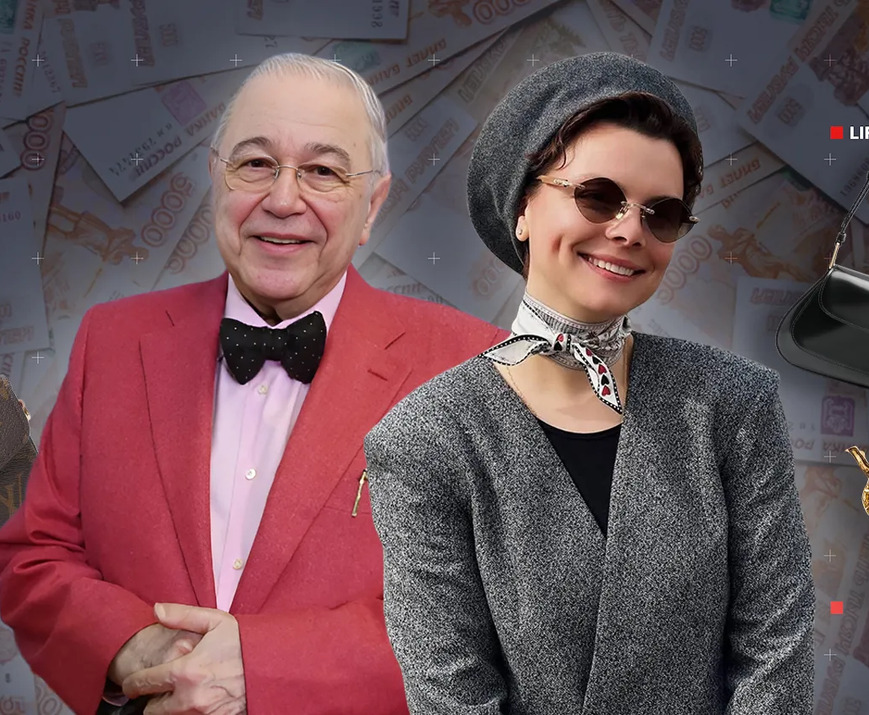
Fifteen years ago, a determined young woman from Tula arrived in Moscow like a comet streaking across a provincial sky. Tatiana Brukhunova, now the wife of legendary satirist Evgeny Petrosyan, didn’t just knock on opportunity’s door—she kicked it down. Starting as a part-time website administrator, she clawed her way up, catching Petrosyan’s eye and eventually becoming his assistant, then the director of his Miniature Theater. By 2018, their relationship was the stuff of tabloid dreams, and by 2020, they welcomed a son, followed by a daughter—sealing her transformation from outsider to insider.
If money were confetti, Brukhunova would be perpetually caught in a blizzard. Her wardrobe isn’t just expensive—it’s a financial ecosystem. A single outfit might hemorrhage half a million rubles: Prada bags dangling like trophies, Gucci socks costing more than a month’s rent, and sunglasses priced like minor art acquisitions. Fashion critics whisper that she treats clothes like disposable cameras—snap, post, discard. Rumor has it she’s spent upwards of three million rubles in a week, as if shopping were an Olympic sport she’s determined to medal in.
Her latest obsession? A "northern home" in St. Petersburg, a jewel box overlooking the Fontanka Embankment, where a giraffe-shaped lamp—costing more than a modest car—stands sentinel. This is her third property, joining a renovated pre-revolutionary Moscow apartment (now forgotten, along with its utility bills) and a 400-million-ruble penthouse near Gorky Park. The latter, predictably, also fell victim to unpaid fees—settled only when the internet erupted in judgment.
Petrosyan’s split from ex-wife Elena Stepanenko was a financial earthquake. The rubble included divided penthouses, country estates, and parking spots—all tallied like poker chips. While Stepanenko reportedly fled to the U.S., Brukhunova reigns supreme, her Instagram a glittering highlight reel of designer labels and high-ceilinged rooms. Yet, beneath the gloss, there’s a telling detail: luxury, for her, seems less about ownership than performance. The clothes, the homes, the deleted comments—all part of a meticulously staged act, where the audience is always watching, and the curtain never falls.
















